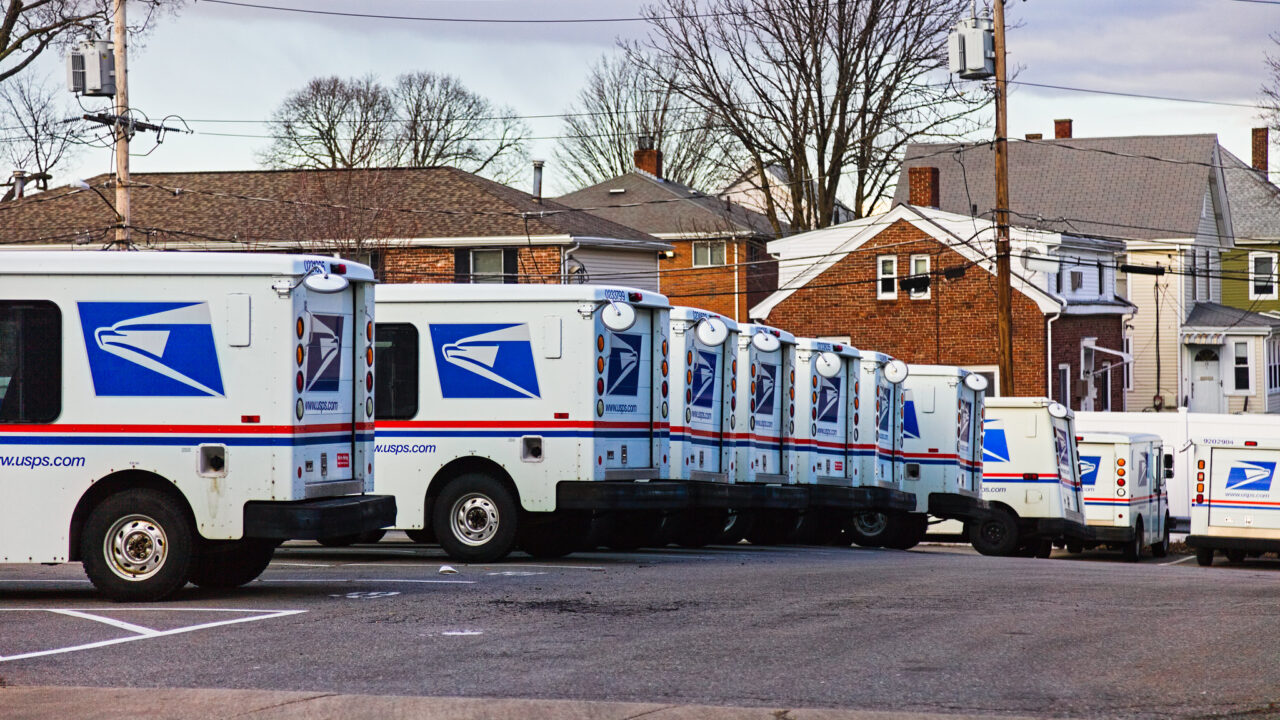 "U.S. Postal Service Mail Trucks" by Sam LaRussa is licensed under CC BY 2.0
"U.S. Postal Service Mail Trucks" by Sam LaRussa is licensed under CC BY 2.0
Lawmakers should oppose any expansion of the United States Postal Service’s participation in commercial banking operations. Allowing the federal government to provide checking and savings accounts, transactional services, or underwrite loans would crowd out private financing and put taxpayers on the hook for covering any losses the USPS will inevitably face.
The USPS’s failure to maintain its own financial stability immediately disqualifies it from engaging in financial services activities. The Government Accountability Office issued a report in September of last year highlighting that from FY 2007 through FY 2020 the USPS amounted losses of $87 billion with $188 billion of debt.
Democrats are hypocrites for advocating for postal banking. Financial institutions are constantly berated by Democrats to pay attention to their financial stability. At the same time, Democrats propose that the USPS, a federal agency that is already billions of dollars in debt, should be stewards of American households’ savings.
In 2018, the Task Force on the United States Postal System issued a report recommending against the USPS from engaging in banking activities. The report stated that:
Given the USPS’s narrow expertise and capital limitations, expanding into sectors where the USPS does not have a comparative advantage or where balance sheet risk might arise, such as postal banking, should not be pursued.
Postal banking will impose a high cost to taxpayers. Peter Conti-Brown of The Wharton School of the University of Pennsylvania points out the USPS will inevitably face defaults on loans, and if USPS were to set interest rates at unreasonably low rates to attract lower income individuals, taxpayers will have to cover the losses. Conti-Brown states that “If that interest rate is priced below what the default risk would justify, then postal banking will quickly run out of money and require significant governmental support to remain viable.”
Taxpayers are the losers under a postal banking regime.
There is also a lack of demand for postal banking. Last year, USPS launched a pilot program in four locations in the United States that “allows customers to purchase a gift card using a payroll or business check.” In the Bronx location, the post office yielded no customers between September 13 and October 31 last year. From September 13 to January 12, between all the locations, only six customers have participated.
The demand for postal banking is few and far between.
The federal government would be entering a market that is already serviced by depository institutions that have expertise in accepting deposits, underwriting retail and institutional loans, and offering payment services.
Democrats also plan to use the Congressional appropriations process to waste millions of taxpayer dollars on redundant postal banking pilot programs. The House report for the Financial Services and General Government Appropriations Bill, 2022 (H. Rept. 117-79) includes language that recommends Congress to allocate $6 million in additional funds above what USPS requested “to carry out pilot programs (in at least five rural zip codes and at least five non-rural zip codes) to modernize its current postal banking services to include surcharge-free automated teller machines, wire transfers, check cashing, and bill payment.” Democrats want to use taxpayer dollars to artificially develop supply for banking services where there is no demand.
The USPS has already failed to follow the proper procedures for implementing the current pilot program. Rep. Blaine Luetkemeyer (R-Mo.) and several Republicans on the House Committee on Financial Services, rightly called out the USPS for circumventing its statutory authority by pursuing the current pilot program without getting approval from the Postal Regulatory Commission.
Any Congressional attempt to pursue further expansion of the USPS’s presence in the banking sector is redundant, a waste of taxpayer dollars, and risks putting Americans’ money into the hands of an organization that lacks the wherewithal and financial acumen to handle conventional banking services.

